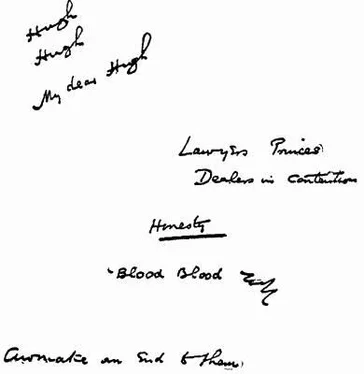Herbert Wells - Mr. Britling Sees It Through
Здесь есть возможность читать онлайн «Herbert Wells - Mr. Britling Sees It Through» весь текст электронной книги совершенно бесплатно (целиком полную версию без сокращений). В некоторых случаях можно слушать аудио, скачать через торрент в формате fb2 и присутствует краткое содержание. Жанр: Классическая проза, на английском языке. Описание произведения, (предисловие) а так же отзывы посетителей доступны на портале библиотеки ЛибКат.
- Название:Mr. Britling Sees It Through
- Автор:
- Жанр:
- Год:неизвестен
- ISBN:нет данных
- Рейтинг книги:4 / 5. Голосов: 1
-
Избранное:Добавить в избранное
- Отзывы:
-
Ваша оценка:
- 80
- 1
- 2
- 3
- 4
- 5
Mr. Britling Sees It Through: краткое содержание, описание и аннотация
Предлагаем к чтению аннотацию, описание, краткое содержание или предисловие (зависит от того, что написал сам автор книги «Mr. Britling Sees It Through»). Если вы не нашли необходимую информацию о книге — напишите в комментариях, мы постараемся отыскать её.
Mr. Britling Sees It Through — читать онлайн бесплатно полную книгу (весь текст) целиком
Ниже представлен текст книги, разбитый по страницам. Система сохранения места последней прочитанной страницы, позволяет с удобством читать онлайн бесплатно книгу «Mr. Britling Sees It Through», без необходимости каждый раз заново искать на чём Вы остановились. Поставьте закладку, и сможете в любой момент перейти на страницу, на которой закончили чтение.
Интервал:
Закладка:
"This kind of thing goes on for hours—in the darkness.
"'I'd got regular sort of fond of 'er.'
"And the extraordinary thing is it makes me begin to get regular fond of Ortheris.
"I think it is because the affair has surprised him right out of acting Ortheris and Tommy Atkins for a bit, into his proper self. He's frightfully like some sort of mongrel with a lot of wiry-haired terrier and a touch of Airedale in it. A mongrel you like in spite of the flavour of all the horrid things he's been nosing into. And he's as hard as nails and, my dear daddy! he can't box for nuts."
§ 5
Mr. Britling, with an understanding much quickened by Hugh's letters, went about Essex in his automobile, and on one or two journeys into Berkshire and Buckinghamshire, and marked the steady conversion of the old pacific countryside into an armed camp. He was disposed to minimise Hugh's criticisms. He found in them something of the harshness of youth, which is far too keen-edged to be tolerant with half performance and our poor human evasion of perfection's overstrain. "Our poor human evasion of perfection's overstrain"; this phrase was Mr. Britling's. To Mr. Britling, looking less closely and more broadly, the new army was a pride and a marvel.
He liked to come into some quiet village and note the clusters of sturdy khaki-clad youngsters going about their business, the tethered horses, the air of subdued bustle, the occasional glimpses of guns and ammunition trains. Wherever one went now there were soldiers and still more soldiers. There was a steady flow of men into Flanders, and presently to Gallipoli, but it seemed to have no effect upon the multitude in training at home. He was pleasantly excited by the evident increase in the proportion of military material upon the railways; he liked the promise and mystery of the long lines of trucks bearing tarpaulin-covered wagons and carts and guns that he would pass on his way to Liverpool Street station. He could apprehend defeat in the silence of the night, but when he saw the men, when he went about the land, then it was impossible to believe in any end but victory....
But through the spring and summer there was no victory. The "great offensive" of May was checked and abandoned after a series of ineffective and very costly attacks between Ypres and Soissons. The Germans had developed a highly scientific defensive in which machine-guns replaced rifles and a maximum of punishment was inflicted upon an assaulting force with a minimum of human loss. The War Office had never thought much of machine-guns before, but now it thought a good deal. Moreover, the energies of Britain were being turned more and more towards the Dardanelles.
The idea of an attack upon the Dardanelles had a traditional attractiveness for the British mind. Old men had been brought up from childhood with "forcing the Dardanelles" as a familiar phrase; it had none of the flighty novelty and vulgarity about it that made an "aerial offensive" seem so unwarrantable a proceeding. Forcing the Dardanelles was historically British. It made no break with tradition. Soon after Turkey entered the war British submarines appeared in the Sea of Marmora, and in February a systematic bombardment of the Dardanelles began; this was continued intermittently for a month, the defenders profiting by their experiences and by spells of bad weather to strengthen their works. This first phase of the attack culminated in the loss of the Irresistible , Ocean , and Bouvet , when on the 17th of March the attacking fleet closed in upon the Narrows. After an interlude of six weeks to allow of further preparations on the part of the defenders, who were now thoroughly alive to what was coming, the Allied armies gathered upon the scene, and a difficult and costly landing was achieved at two points upon the peninsula of Gallipoli. With that began a slow and bloody siege of the defences of the Dardanelles, clambering up to the surprise landing of a fresh British army in Suvla Bay in August, and its failure in the battle of Anafarta, through incompetent commanders and a general sloppiness of leading, to cut off and capture Maidos and the Narrows defences.... Meanwhile the Russian hosts, which had reached their high-water mark in the capture of Przemysl, were being forced back first in the south and then in the north. The Germans recaptured Lemberg, entered Warsaw, and pressed on to take Brest Litowsk. The Russian lines rolled back with an impressive effect of defeat, and the Germans thrust towards Riga and Petrograd, reaching Vilna about the middle of September....
Day after day Mr. Britling traced the swaying fortunes of the conflict, with impatience, with perplexity, but with no loss of confidence in the ultimate success of Britain. The country was still swarming with troops, and still under summer sunshine. A second hay harvest redeemed the scantiness of the first, the wheat crops were wonderful, and the great fig tree at the corner of the Dower House had never borne so bountifully nor such excellent juicy figs....
And one day in early June while those figs were still only a hope, Teddy appeared at the Dower House with Letty, to say good-bye before going to the front. He was going out in a draft to fill up various gaps and losses; he did not know where. Essex was doing well but bloodily over there. Mrs. Britling had tea set out upon the lawn under the blue cedar, and Mr. Britling found himself at a loss for appropriate sayings, and talked in his confusion almost as though Teddy's departure was of no significance at all. He was still haunted by that odd sense of responsibility for Teddy. Teddy was not nearly so animated as he had been in his pre-khaki days; there was a quiet exaltation in his manner rather than a lively excitement. He knew now what he was in for. He knew now that war was not a lark, that for him it was to be the gravest experience he had ever had or was likely to have. There were no more jokes about Letty's pension, and a general avoidance of the topics of high explosives and asphyxiating gas....
Mr. and Mrs. Britling took the young people to the gate.
"Good luck!" cried Mr. Britling as they receded.
Teddy replied with a wave of the hand.
Mr. Britling stood watching them for some moments as they walked towards the little cottage which was to be the scene of their private parting.
"I don't like his going," he said. "I hope it will be all right with him.... Teddy's so grave nowadays. It's a mean thing, I know, it has none of the Roman touch, but I am glad that this can't happen with Hugh——" He computed. "Not for a year and three months, even if they march him into it upon his very birthday....
"It may all he over by then...."
§ 6
In that computation he reckoned without Hugh.
Within a month Hugh was also saying "Good-bye."
"But how's this?" protested Mr. Britling, who had already guessed the answer. "You're not nineteen."
"I'm nineteen enough for this job," said Hugh. "In fact, I enlisted as nineteen."
Mr. Britling said nothing for a little while. Then he spoke with a catch in his breath. "I don't blame you," he said. "It was—the right spirit."
Drill and responsibilities of non-commissioned rank had imposed a novel manliness upon the bearing of Corporal Britling. "I always classified a little above my age at Statesminster," he said as though that cleared up everything.
He looked at a rosebud as though it interested him. Then he remarked rather casually:
"I thought," he said, "that if I was to go to war I'd better do the thing properly. It seemed—sort of half and half—not to be eligible for the trenches.... I ought to have told you...."
"Yes," Mr. Britling decided.
"I was shy about it at first.... I thought perhaps the war would be over before it was necessary to discuss anything.... Didn't want to go into it."
Читать дальшеИнтервал:
Закладка:
Похожие книги на «Mr. Britling Sees It Through»
Представляем Вашему вниманию похожие книги на «Mr. Britling Sees It Through» списком для выбора. Мы отобрали схожую по названию и смыслу литературу в надежде предоставить читателям больше вариантов отыскать новые, интересные, ещё непрочитанные произведения.
Обсуждение, отзывы о книге «Mr. Britling Sees It Through» и просто собственные мнения читателей. Оставьте ваши комментарии, напишите, что Вы думаете о произведении, его смысле или главных героях. Укажите что конкретно понравилось, а что нет, и почему Вы так считаете.






